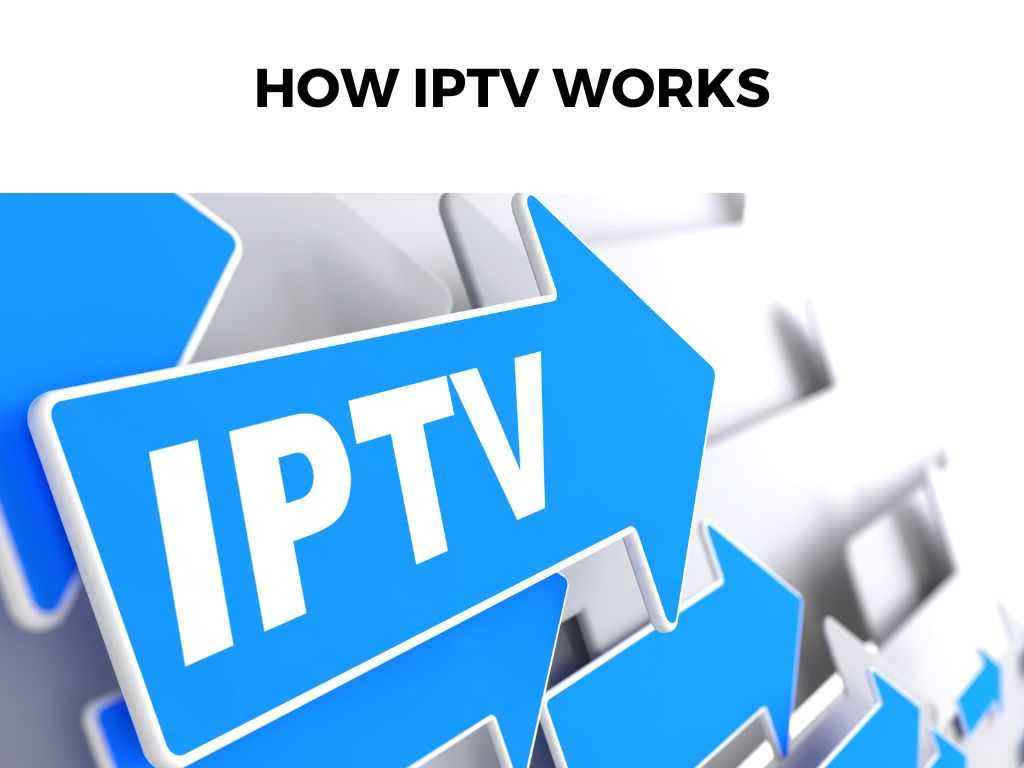
Scroll down to get a detailed answer
Table of Contents
Dive Into IPTV: What Is It?
IPTV, or Internet Protocol Television, is a system where TV services are delivered via the Internet rather than through traditional terrestrial, satellite, or cable television formats. Unlike downloaded media, IPTV offers the ability to stream source media continuously.
As a result, a client media player can begin playing the content almost immediately. This is known as streaming media.
In simpler terms, IPTV converts a television signal into small packets of computer data like any other form of online traffic such as email or a web page. There are three main components of IPTV. First, the TV and content head end, where the TV channels are received and encoded and also other content like videos which are stored.
The second component is the deliver network, which is broadband and landline network provided by an ISP (Internet Service Provider). The third component is the home gateway, a set-top box or IPTV box, which sits at the customers home.
How Does IPTV Work?
The working of IPTV involves several steps:
- Content Acquisition and Preparation: This is the stage where the TV shows and movies are gathered and prepared for delivery to the end user. It involves capturing and compressing video, encrypting, and distributing it over servers.
- Video on Demand (VoD) Storage: Here, the content that users can select and watch at their convenience is stored on servers. This could range from movies, documentaries, TV series, etc.
- Streaming: IPTV is all about streaming, and this process occurs when you watch the content. It involves decompressing video files and sending them to the user’s device.
- Viewing: Lastly, the customer’s device receives the data, decompresses it, decodes it, and then displays it on the TV screen.
Note: The IPTV service must be able to deliver large amounts of high-quality content more efficiently over a variety of platforms including fiber optics, wireless, and satellite.Advantages of IPTV
Here’s why I recommend IPTV:
- User-centric content: IPTV operates on the premise of providing content that the user wants to view. This highly personalized feature is an advantage over traditional TV services.
- Integration with other IP-based services: Users can access a range of services such as high-speed internet or Voice over IP (VoIP) along with their IPTV subscriptions.
- Efficient use of bandwidth: Through the use of IP multicasting and Unicast IP, IPTV allows for a single stream of data to be distributed to multiple users simultaneously, hence making efficient use of available bandwidth.
A Look At The IPTV Set-Top Box (STB)
The set-top box (STB) does a lot of work to make your IPTV viewing experience seamless and enjoyable. It decodes and decrypts TV and VoD streams into high-quality video that you can watch on your TV.
The IPTV box connects your TV with an ethernet cable to your router. However, some newer models may also connect via Wi-Fi.
The Distinctive Features of IPTV
As we delve deeper into the nuances of IPTV, it’s crucial to highlight the distinctive features that set it apart.
Live Television
With IPTV, you can stream live TV just as you would with traditional broadcast methods. This feature, also known as linear television, allows you to watch live telecasts of your favorite shows or sporting events as they happen.
It’s just like watching TV the traditional way, but with the added benefit of using your Internet connection.
Time-Shifted Media
One key feature that IPTV offers is time-shifted media. This allows users to view broadcasted shows at a time that suits them. For instance, if you missed a specific program, you can replay it after it’s aired.
It’s a feature I personally love, as it provides viewers with a level of flexibility that traditional TV services usually lack.
Video-On-Demand (VOD)
Lastly, and perhaps one of the most significant features of IPTV, is Video-On-Demand (VOD). As the name suggests, this allows you to select and watch content whenever you want, from an extensive catalog of videos that is not limited to television programming.
IPTV Protocols
IPTV uses Internet protocols to function. The three main types of IPTV protocols include:
- IP Multicast: This protocol is used for live television broadcasts. It works by sending out data to multiple receivers at once, which can significantly save on server bandwidth.
- IP Unicast: This protocol is used for Video-On-Demand services. It works by sending data from the server to a single device, ensuring personalized content delivery.
- Real-time Streaming Protocol (RTSP): This protocol is used to control media sessions between end points and allows an IPTV service to control playback of media files on the user’s device.
Note: Understanding these protocols isn’t essential for the average user but gives you a better understanding of how IPTV manages to deliver content so seamlessly. When opting for an IPTV service, there are several factors to consider: Looking ahead, the future of IPTV is bright. IPTV technology is improving, and as it becomes more mainstream, it’s likely to become even more user-friendly and feature-rich. This growth in the IPTV market is being driven by technological advancements and increased demand for on-demand video consumption. As we can see, IPTV represents a paradigm shift from the traditional method of broadcasting television signals. By using the Internet to deliver TV programs and videos, IPTV presents a new, exciting, and flexible opportunity to evolve and improve our TV viewing experience. IPTV is a system where TV services are delivered using the internet, rather than through traditional terrestrial, satellite, or cable television formats. Yes, IPTV is legal. However, it becomes illegal if the service provider does not have the necessary rights to distribute the content. Some advantages include user-centric content, efficient use of bandwidth, and integration with other IP-based services. Yes, a set-top box is necessary for decoding and decrypting the TV and VoD streams into viewable content. IPTV works by converting a television signal into small packets of computer data like any other form of online traffic such as email or a web page.Considerations When Choosing an IPTV Service
The Future of IPTV
Conclusion
FAQs
What is IPTV?
Is IPTV Legal?
What are the advantages of IPTV?
Do I need a set-top box for IPTV?
How does IPTV work?
Was this helpful?


